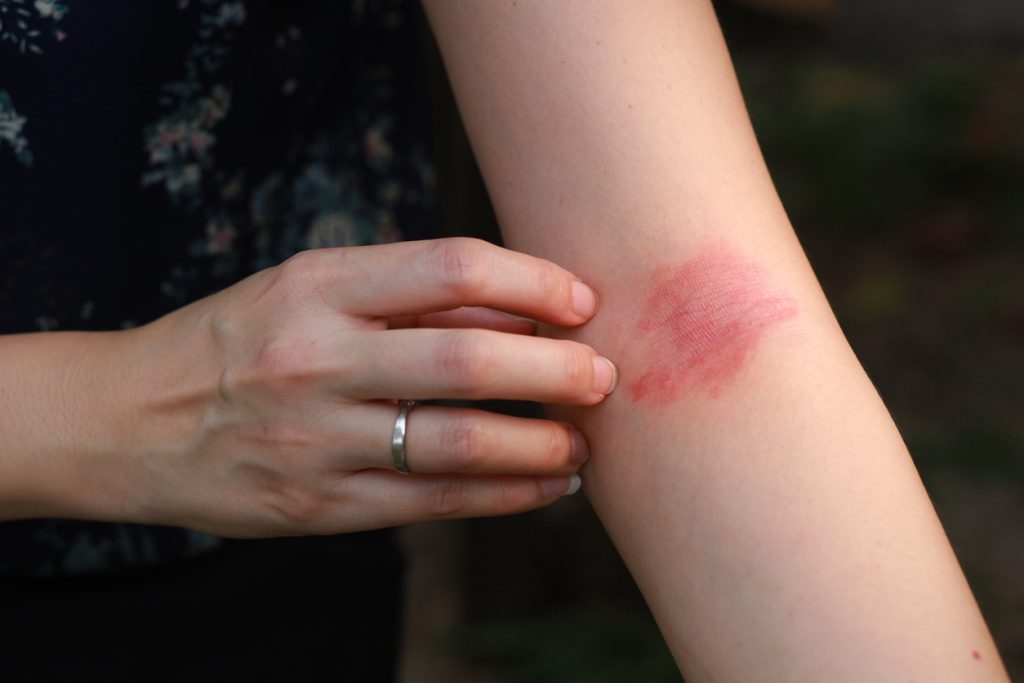Upadacitinib (Rinvoq, AbbVie) bested dupilumab (Dupixent, Sanofi and Regeneron Pharmaceuticals, Inc.) in adults and adolescents with moderate-to-severe atopic dermatitis (AD) who had an inadequate response to or couldn’t tolerate systemic therapy, according to LEVEL UP, an open-label, head-to-head Phase 3b/4 study.
The LEVEL UP study is the first head-to-head trial in atopic dermatitis assessing upadacitinib at a starting dose of 15mg daily versus dupilumab at its labeled dose. For the study, upadacitinib was initiated in adults and adolescents at 15mg once daily (QD) and dose-escalated to 30mg QD based on clinical response. Dupilumab was initiated at 600mg, followed by 300mg every other week (Q2W) in adults and adolescents weighing ≥60 kg; adolescents weighing less than 60kg received an initial dose of 400mg, followed by 200mg Q2W.
Upadacitinib is an oral Janus kinase (JAK) inhibitor that’s approved for the treatment of rheumatoid arthritis, psoriatic arthritis, AD, ulcerative colitis, Crohn’s disease, ankylosing spondylitis, and non-radiographic axial spondyloarthritis. Dupilumab is a monoclonal antibody that blocks interleukin (IL)-4 and IL-13 and is approved for AD, asthma, chronic rhinosinusitis with nasal polyposis, eosinophilic esophagitis, and prurigo nodularis.
Upadacitinib showed superior efficacy versus dupilumab in the primary endpoint, demonstrating that a significantly higher proportion of patients simultaneously achieved both a 90% or greater reduction in Eczema Area and Severity Index (EASI 90) and a Worst Pruritus Numerical Rating Scale of 0 or 1 (WP-NRS 0/1) at Week 16 (19.9% vs 8.9% for upadacitinib and dupilumab, respectively.)
“Too many patients are still not achieving optimal disease control in atopic dermatitis despite taking steps to manage their condition,” says study author and TDD Editorial Advisory Board Member Jonathan Silverberg, MD, PhD, MPH, Professor of Dermatology and Director of Clinical Research at the George Washington University School of Medicine and Health Sciences in Washington, DC, in a news release. “Results from the LEVEL UP study highlight how treatment options such as upadacitinib can achieve high treatment goals in atopic dermatitis with combined measures of EASI 90 and NRS 0/1, not just itch resolution or just skin clearance.”
Upadacitinib also showed superiority versus dupilumab for all ranked secondary endpoints, including the rapid onset of achieving near-complete skin clearance and no to little itch. For the first two ranked secondary endpoints, the study showed that a significantly higher proportion of patients treated with upadacitinib:
- Achieved EASI 90 at Week 16 (40.8% vs 22.5)
- Achieved a WP-NRS of 0/1 at Week 16 [(30.2% vs 15.5%)
AbbVie plans to present results from the LEVEL UP study at a future medical congress.
The safety profile of upadacitinib was consistent with the profile in previous atopic dermatitis studies with no new safety signals identified during the 16-week period. There was one serious infection reported in the dupilumab group and none in the upadacitinib group. No malignancies, adjudicated major adverse cardiac events, adjudicated venous thromboembolic events (VTEs), or treatment-emergent deaths were reported in either treatment group.
“Even while receiving conventional treatments, many patients with atopic dermatitis still continue to live with significant itch and inflammatory skin symptoms that can profoundly impact their everyday lives,” says Roopal Thakkar, MD, Senior Vice President and Chief Medical Officer of Global Therapeutics at AbbVie. “Results from this study show that patients with moderate-to-severe atopic dermatitis can strive for both little to no itch and clearer skin.”


